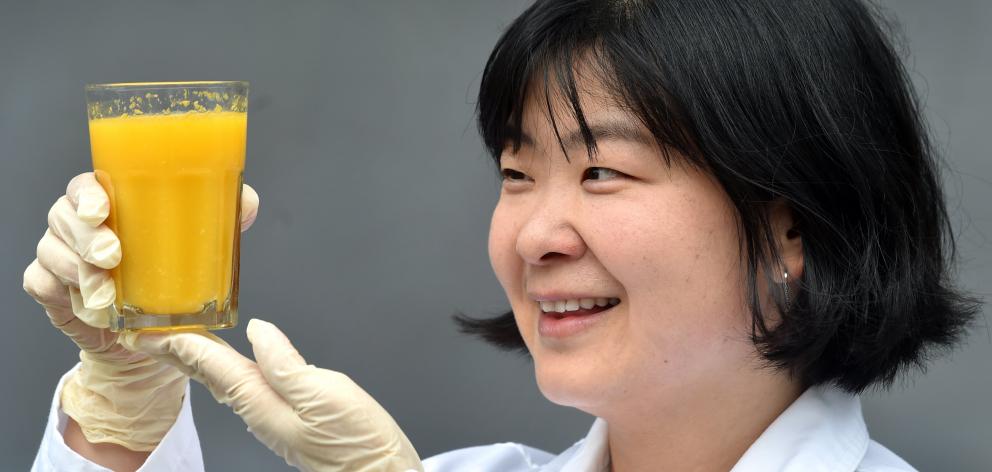
University of Otago food science researchers have been testing people’s rejection threshold to increasing or decreasing amounts of sugar in a cordial drink, and how that relates to their daily diet.
Lead author Dr Mei Peng said the research found people had a relatively broad range for sugar acceptance.
On average, study participants accepted drinks with 112% more sugar than the manufacturer’s recommendation, and drinks with 62% less sugar.
The acceptable reduction of sugar surprised the researchers, and Dr Peng said it had very important implications.
"The findings imply that consumers are able to accept products, or at least simple beverages, with a considerable sugar reduction, despite being able to detect differences in the sweetness levels.
"Even a 47% sugar reduction in a standard 250ml orange cordial can lead to a substantial energy deduction of 170kj, or 41kcal, per drink.
"To put this in context, previous studies have indicated reducing sugar in all soft drinks by 40% could reduce the number of overweight people by 500,000 and obese people by 1,000,000 in the United Kingdom."
Whether sugar was really "the devil" in our modern diet was still up for debate, she said.
"However, excessive sugar intake is closely linked to weight issues, so it is important to increase understanding of individual differences in sweetness preference and continue exploring ways to reduce dietary sugar intake."
The researchers used the findings to determine potential links between study participants’ rejection points, and their sugar intake in real life.
They found those most sensitive to sugar reduction consumed significantly more energy from sugar in their daily diet, highlighting the important role sense of taste plays in guiding our dietary habits.
"Our research is in line with some public health policy proposals for sugar reduction — having some gradual reduction in sweetened products over a prolonged period of time will help people accept products with reduced sugar more easily," Dr Peng said.












